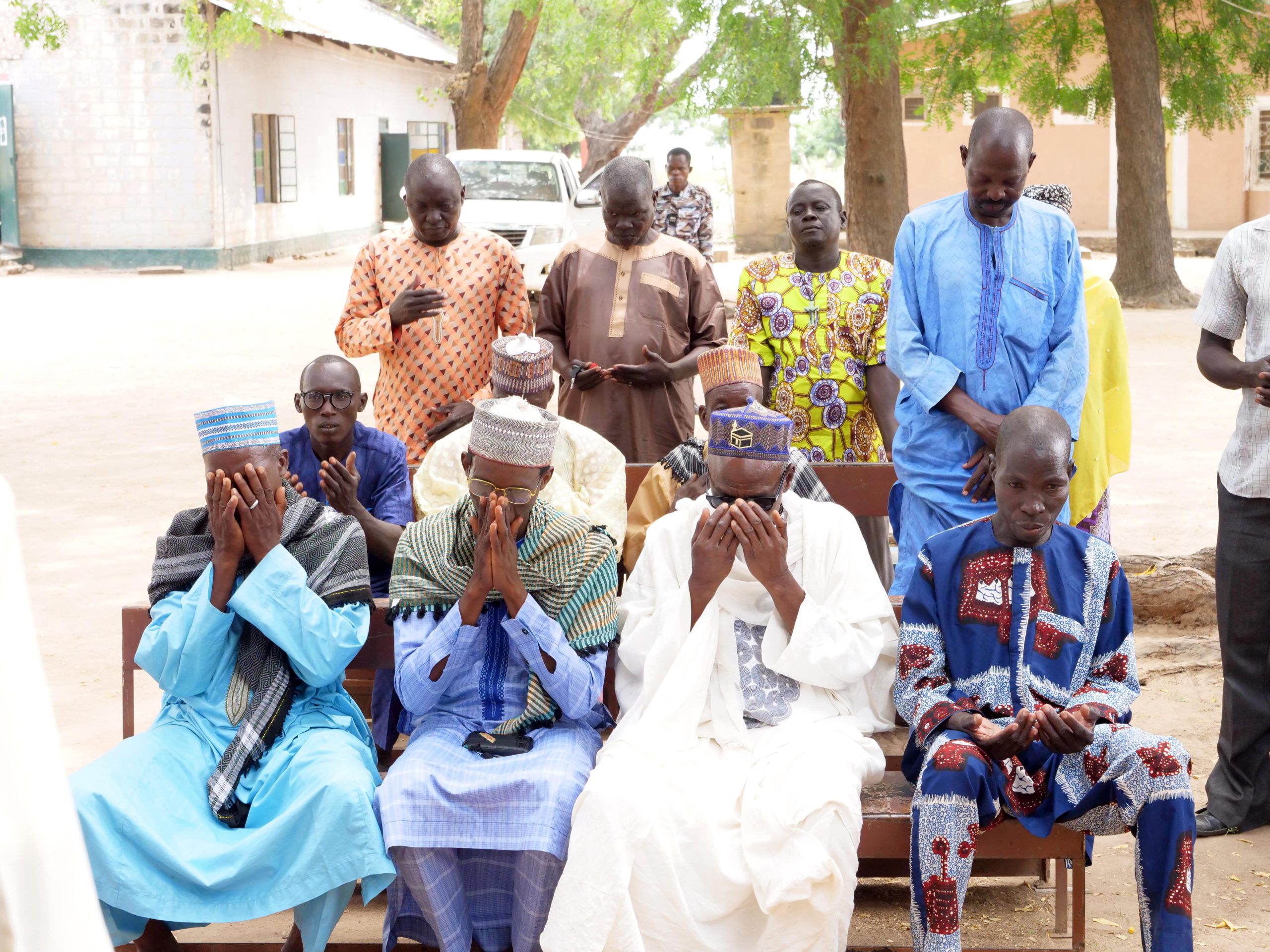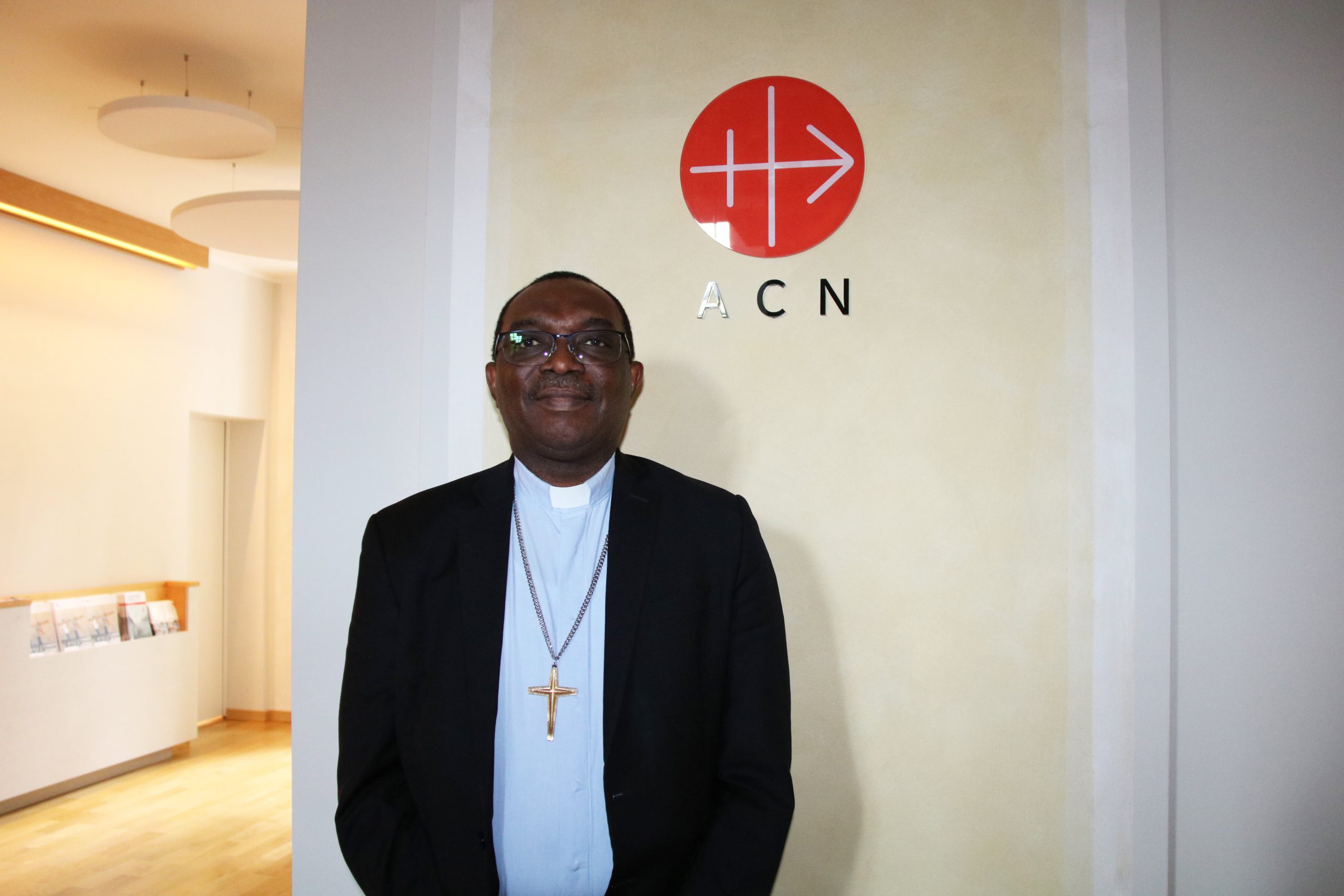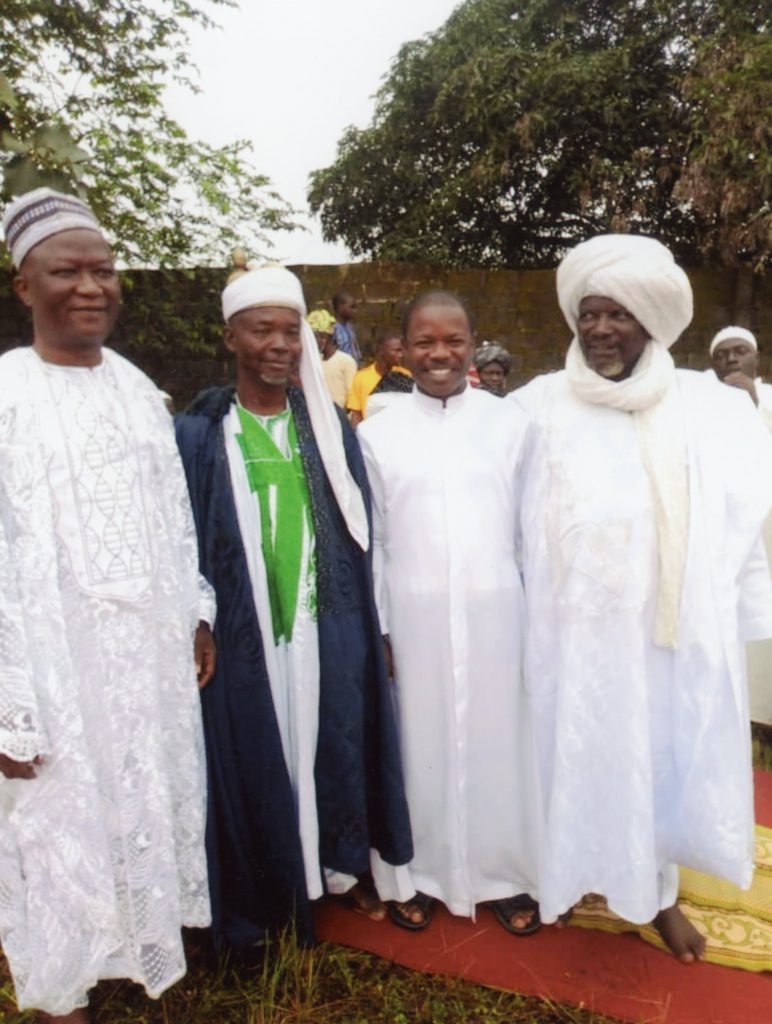A project supported by ACN has been bearing fruit in southwest Nigeria, where Christian and Muslim leaders work together to promote peace in Osun State. This Catholic-led project is making a difference in a country that is otherwise known for interreligious conflict and persecution of Christians.
The Diocese of Osogbo, in Osun State, has been developing a project which brings Muslim and Christian leaders together to defuse tension and avoid the sort of interreligious conflict that has caused hundreds, if not thousands, of deaths in other parts of the country, namely in the Middle Belt and the north.
Interreligious Harmony Essential
“The diocese has about five million people. About three million are Muslims and two million are Christians. Catholics make up around 600 thousand”, says Bishop John Oyejola, of Osogbo, during a visit to the headquarters of Aid to the Church in Need (ACN), in Germany. The bishop adds that despite being a minority, Catholics run most of the social development and aid projects and institutions in the region.
With such a demographic situation, Bishop John believes that building interreligious harmony is essential to keeping the peace and allowing the Church to carry out its mission. “We cannot preach Christianity where there is no peace. So let us make peace with every person. We respect your religion, please respect ours.”
What has happened in Osogbo, however, has gone far beyond just mutual respect and taken the form of deep friendship, says Fr Peter Akinkunmi, who completed a course in Arabic and Islamic Studies in Rome before returning to Nigeria to take up the post of Diocesan Director for Interfaith Dialogue.
Migration Challenging Dialog
Fr Akinkunmi says that relations between Christians and Muslims had traditionally been very good in Osun State, but that began to change around 15 years ago, as worsening persecution in the north forced many south-westerners to return to their homeland. “The stories they came back with, the narratives and the mindset, began to influence our youth. They saw people coming back empty handed, their lives shattered, and this began to breed bitterness.”
The situation was aggravated when the local government passed a law allowing Muslim girls to wear the hijab in Christian schools. “The Muslim and Christian communities dragged each other to the courts, and the courts legislated in favour of the Muslims. That was the last straw. All of the points of unity between Christian and Muslim leaders were shattered, and they stopped meeting in the various forums of dialogue”, says Fr Peter.

Rebuilding trust
When Bishop Oyejola took office in 2016 relations were frozen, but he took the initiative to rebuild. What began as goodwill messages and courtesy visits to the Grand Imam soon developed into a good friendship. The two religious leaders knew that they had to use their influence for the good of the whole community, and began to consult together and speak out about important issues, “to create a new vision of Christian and Muslim leadership, walking together, for the good of the entire state”, says Fr Peter.
This new atmosphere of dialogue soon began to bear fruit. “The most sensitive period in our lives as a nation has always been elections, and Osun state is very particular because we hold our governorship election eight months before the general and presidential election, so Osun is usually the most politically tense state in the country.”
“We organised a Forum for the Promotion of Peace and Solidarity with the support of ACN. It was about the bishop and the imam, with their aides, sitting together and looking at developments around the state. What is the situation? How are we preparing for elections? And then speaking out about issues that could threaten peace in the community.”
The ACN-funded programme also includes a weekly live radio broadcast in which different religious leaders draw insight from the teachings of their religious tradition as it pertains to peace and interreligious fraternity, and joint press-conferences by Christian and Muslim religious leaders, as well as by Christian and Muslim women, around election times.
The result has been a of peaceful elections, the last of which resulted in a Christian governor, which threatened to cause a whole new problem. “A group called Muslim Rights Concern began criticising the governor, accusing him of appointing mainly Christians and ignoring the Islamic community. Issues like this risked rekindling bitterness. But the local Islamic community spoke up and completely distanced itself from the statements, saying they do not represent the opinions of Muslims in Osun state.”
Fr Peter recalls a third instance in which violent anti-government protests over currency instability and fuel shortages rocked the country. “Religious leaders from the grassroot communities were called for seminars and workshops to reflect on how to manage the situation in a manner that would not escalate into violence. As a result, on Friday and Sunday sermons, special attention was devoted to exhorting people to peaceful conducts, and in Osun State there were no protests.”

Bishop Sheikh
Trust between the communities has grown so deep that Muslim representatives were invited to attend the diocesan synod, and the Grand Imam bestowed the honorary title of Sheikh on Bishop Oyejola, explaining that in Arabic the term refers to a wise old man.
“The continuous collaboration between the imam and the bishop, which we have publicised to the media through this project, has already neutralised the capacity of politicians to use religion to manipulate our people”, says Fr Peter, and Bishop Oyejola adds that neighbouring dioceses have already begun to copy the model used in Osogbo.
Other institutions in Osun have also been following the example. Before recent elections, the local branches of the Federation of Muslim Women and of the women’s wing of the National Christian Association, got together to successfully lobby for pregnant women, nursing mothers and elderly ladies to get priority in voting lines, and later, when analysing cases of women who needed charitable assistance in their respective communities, the Christians decided to support the Muslim applicant, because her situation was more serious than that of the Christians.
The great fruits of this project would not have been possible without the support given by ACN. “We want to sustain it and make sure that we have more results, because what we need is peace”, says Bishop Oyejola, expressing his thanks to the pontifical charity.


